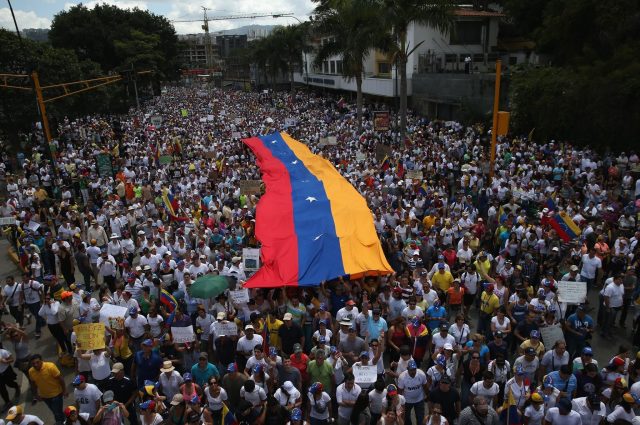By Joseph Young,
The economy of Venezuela has been shred apart by a financial crisis resulted from the local government’s decision to demonetize the nation’s largest denomination banknote. However, after a plane carrying the newly printed banknotes failed to arrive, Venezuelan authorities officially declared the previously scrapped 100bs banknotes a legal tender once again.
People have struggled to obtain cash to finance their daily living and according to AP correspondent Hannah Dreier, no one in the country had access to cash for almost two straight days.
Consequently, the lack of cash led to the starvation of the general population. Over the Christmas holidays, people died whilst failing to acquire food, medicine and other basic necessities. Hundreds of people have been arrested and some were killed amid fierce protests against the government’s impractical and inconsiderate demonetization of banknotes and destruction of its monetary system.
Such incidents arise when a central entity or authority have monopoly over its monetary system and the country’s money flow. Financial networks and banking systems become unreliable if trust is involved, as seen in the recent catastrophe in Venezuela.
Developing Awareness Towards Government Monopoly
People are becoming increasingly aware of the consequences of government-funded and supported banking and financial systems. Until recently, a majority has had to deal with the financial monopoly of the government due to the non-existence of decentralized currencies. However, bitcoin is gradually altering the mindset of the global population across the world by providing people with the ability to gain control of their money and obtain financial freedom.
On the other side of the fence, some economists and analysts including former Stanford, Harvard and Berkeley professor Vivek Wadhwa firmly believe the decentralized and anonymous nature of bitcoin have ultimately led to its failure. In a recent article entitled “R.I.P., Bitcoin. It’s time to move on” published in the Washington Post, Wadhwa stated “Bitcoin was born with serious flaws,” describing the unregulated aspect of the digital currency.
However, bitcoin has outperformed all currencies and assets in 2016 so far, due to those characteristics that are currently being condemned by economists including Wadhwa and Nobel prize winning professor Paul Krugman. Bitcoin is providing a strong alternative for people that have been abandoned by government-supported monetary systems, banking services and financial networks. It is providing people in Venezuela hope of financial freedom by granting them a store of value that cannot be controlled, monopolized or manipulated by authorities.
Rising Interests in Bitcoin, Google Searches Rise
Eventually, Venezuelans have developed a keen awareness of emerging technologies and stores of value like bitcoin. In fact, over the past week, Google searches for the keyword “bitcoin” in Venezuela rose by over 400%. Some Venezuelans have begun to allocate their capital — which is rapidly losing value due to the devaluation of the Venezuelan bolivar — in bitcoin mining, with hopes to obtain a legitimate currency in bitcoin to purchase goods and items internationally on platforms like Amazon through bitcoin applications such as Purse.io.
The rising demand and interest in bitcoin in Venezuela also make the possibility of the replacement of national currency with a digital store of value such as bitcoin likely, considering that the national currency has already lost its value amongst Venezuelans. People are trying anything within their capacity to obtain US dollars, gold and bitcoin to ensure they can support their daily living.

